Kalyana Veetile Beef Varattiyathu | Beef Ularthiyathu
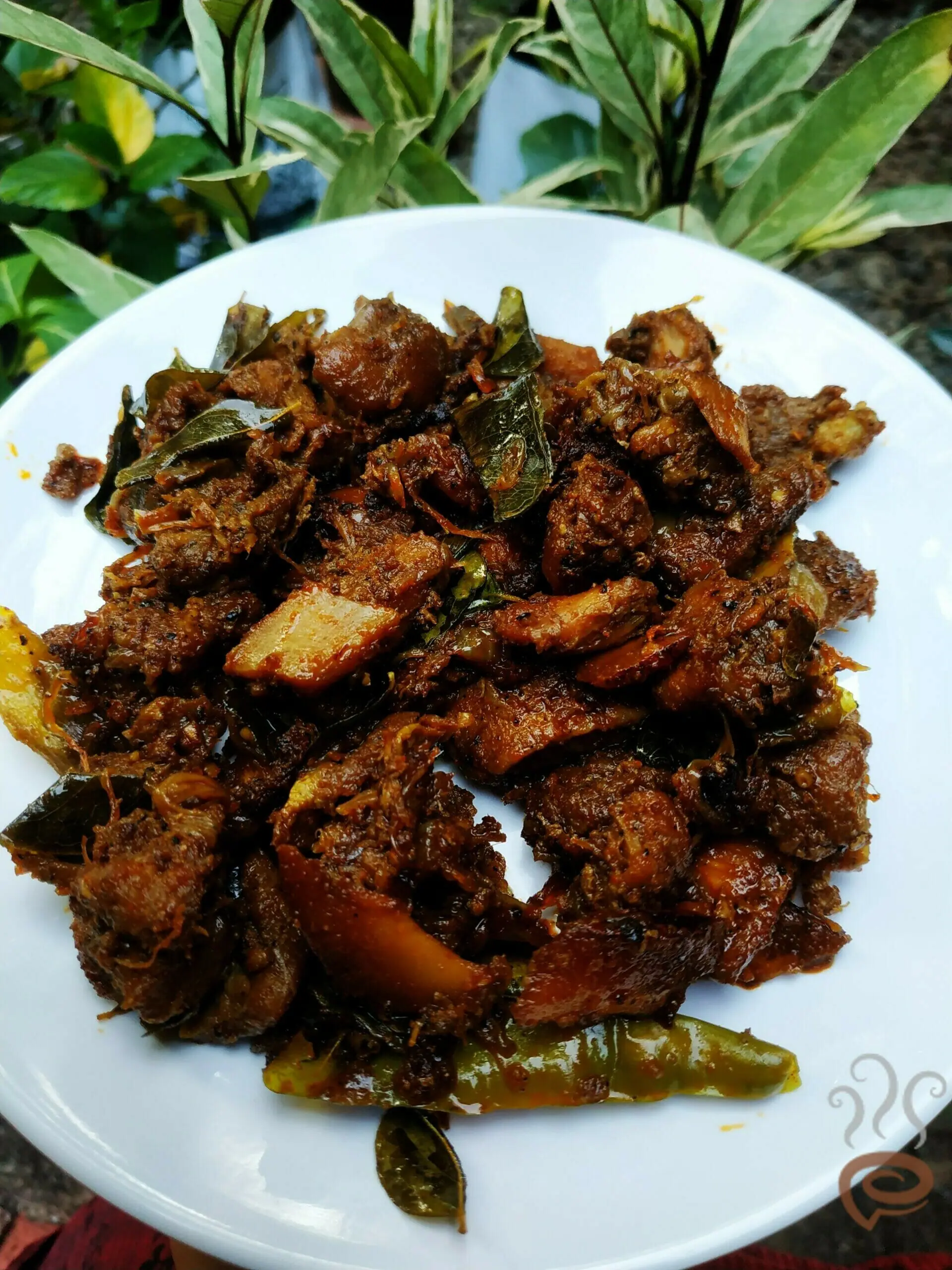
Discover The Essence Of Tradition With Kalyana Veetile Beef Varattiyathu | Beef Ularthiyathu
Dive into the rich culinary heritage of Kerala with Kalyana Veetile Style Beef Varattiyathu, also known as Beef Ularthiyathu. Indulge in the aromatic flavors and rich heritage of Kerala cuisine with the dish. This iconic dish embodies the essence of tradition, passed down through generations in Keralite households.
Exploring the Cultural Roots
Kerala, often referred to as “God’s Own Country,” boasts a vibrant culinary landscape shaped by its diverse cultural influences. The cuisine of Kerala is renowned for its use of fresh ingredients, aromatic spices and traditional cooking techniques.
Ingredients and Preparation
At the heart of Kalyana Veetile Style Beef Varattiyathu, lies a harmonious blend of ingredients meticulously prepared to perfection. While the recipe may vary from one household to another, common components include succulent pieces of beef marinated in a fragrant mixture of spices such as turmeric, coriander, and chilly powder. The meat is then slow-cooked until tender, allowing the flavors to meld and intensify.
Cultural Significance
Beyond its culinary appeal, the dish holds deep-rooted cultural significance in Kerala. Traditionally, the dish is served during festive occasions, family gatherings and weddings. “Kalyana Veetile” translates to “at the house of the bride” and the dish symbolizes warmth, hospitality, and communal celebration. It brings families together, fostering a sense of unity and camaraderie.
Regional Variations
While the dish remains a cherished staple across Kerala, regional variations add a unique twist to this beloved dish. From the fragrant spices of Malabar to the coconut-infused flavors of Travancore, each region offers its own interpretation, showcasing the diversity of Kerala’s culinary heritage. Whether enjoyed with steaming hot rice, fluffy appams, or crispy parathas, Beef Ularthiyathu captivates the palate with its irresistible flavors.
Conclusion
The spicy Beef Ularthu stands as a culinary masterpiece deeply ingrained in Kerala’s cultural fabric. Beyond its exquisite flavors and tantalizing aromas, this iconic dish serves as a symbol of unity, tradition, and shared heritage.
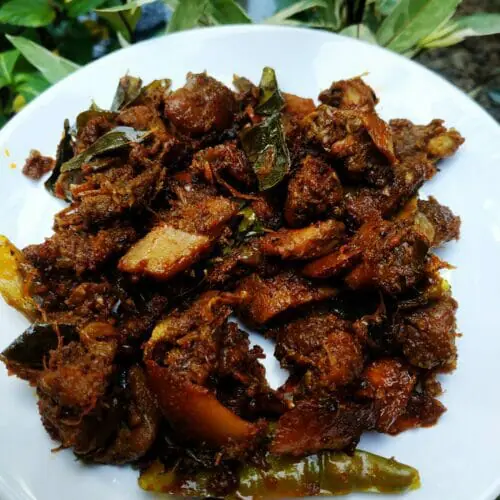
Kalyana Veetile Beef Varattiyathu | Beef Ularthiyathu
Ingredients
- 1 kg Beef
- 3 nos. Onion medium size
- 3 nos. Green chilly
- 3-4 sprig curry leaves
- 1/2 tbsp Kashmiri chilli powder
- 1/4 tbsp Coriander powder
- 1 tbsp Pepper powder
- 1 tsp Garam masala
- 1/2 cup Coconut oil
- 1/2 cup Coconut bits
- As reqd Salt
For marinating beef :
- 1/2 tsp Turmeric powder
- 15-20 cloves Garlic
- 1 piece Ginger large
- 1 tbsp Kashmiri chilli powder
- 1 tbsp Coriander powder
- few curry leaves
- As required Salt
Instructions
- Cut the beef into small pieces and wash it thoroughly. Prepare all other ingredients.
- In a pressure cooker add cleaned beef, kashmiri chilly powder, turmeric powder, coriander powder, crushed ginger garlic, curry leaves and salt as required
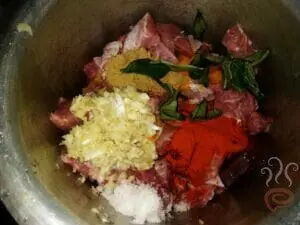
- Marinate the beef in the masala mixture and keep aside for 15 minutes. Pressure cook the marinated beef with 1 cup of water for about 20 to 30 minutes or according to the texture of the meat on medium-low flame.
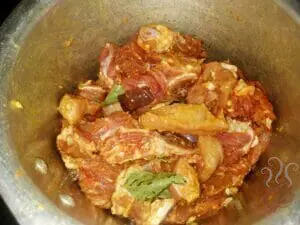
- Heat coconut oil in a pan (Here i have used an uruli), add coconut bits and fry till light brown in colour.
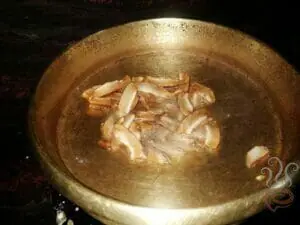
- Then add green chilly and curry leaves. Saute for 1 minute.
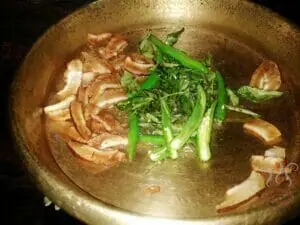
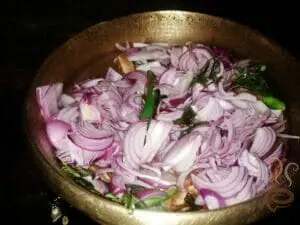
- Saute for 4-5 minutes.
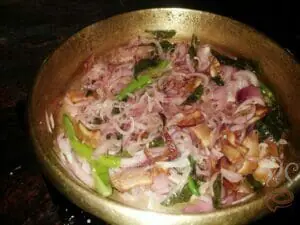
- Add cooked beef and mix well.
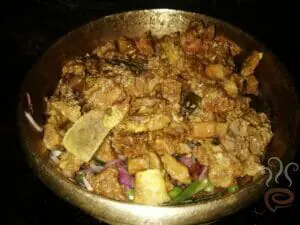
- Add chilly powder, pepper powder, garam masala powder and coriander powder. Combine well. The raw smell will fade eventually.
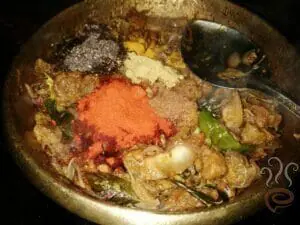
- Cook on low flame and stir occasionally to prevent it from sticking to the pan. Add curry leaves and slow roast until beef becomes dry and dark brown in colour.
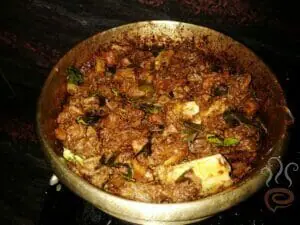
- Serve with rice or tapioca or anything you like.
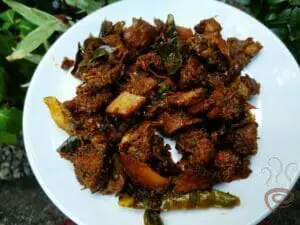
Notes
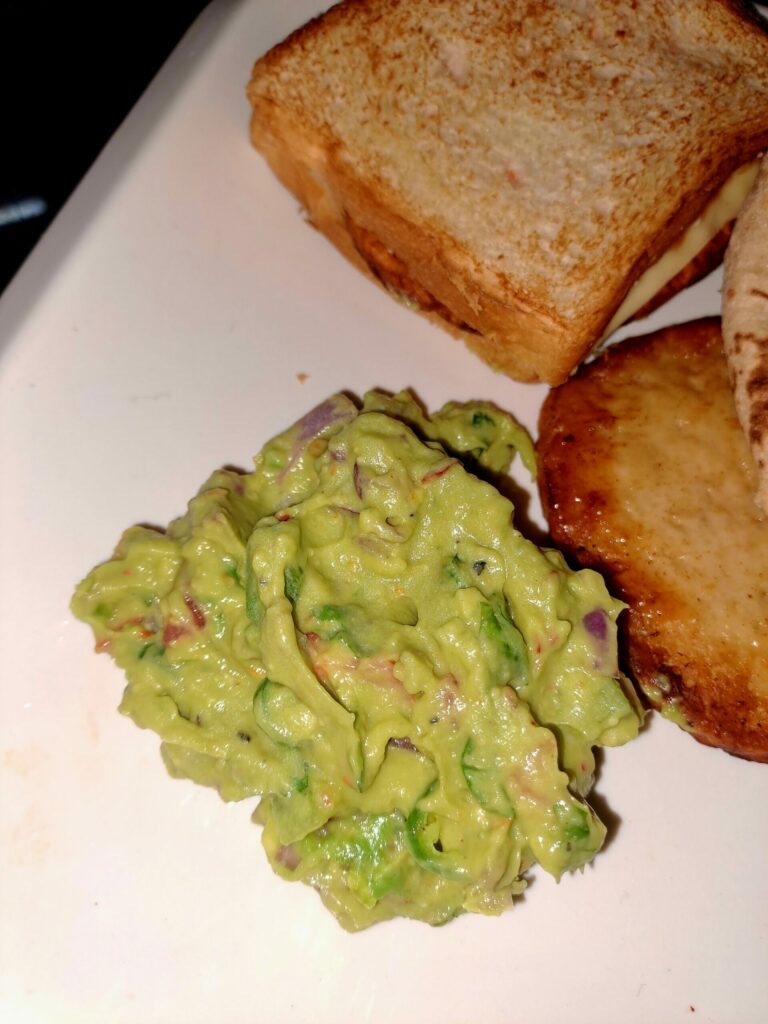
Guacamole | Avocado Guacamole
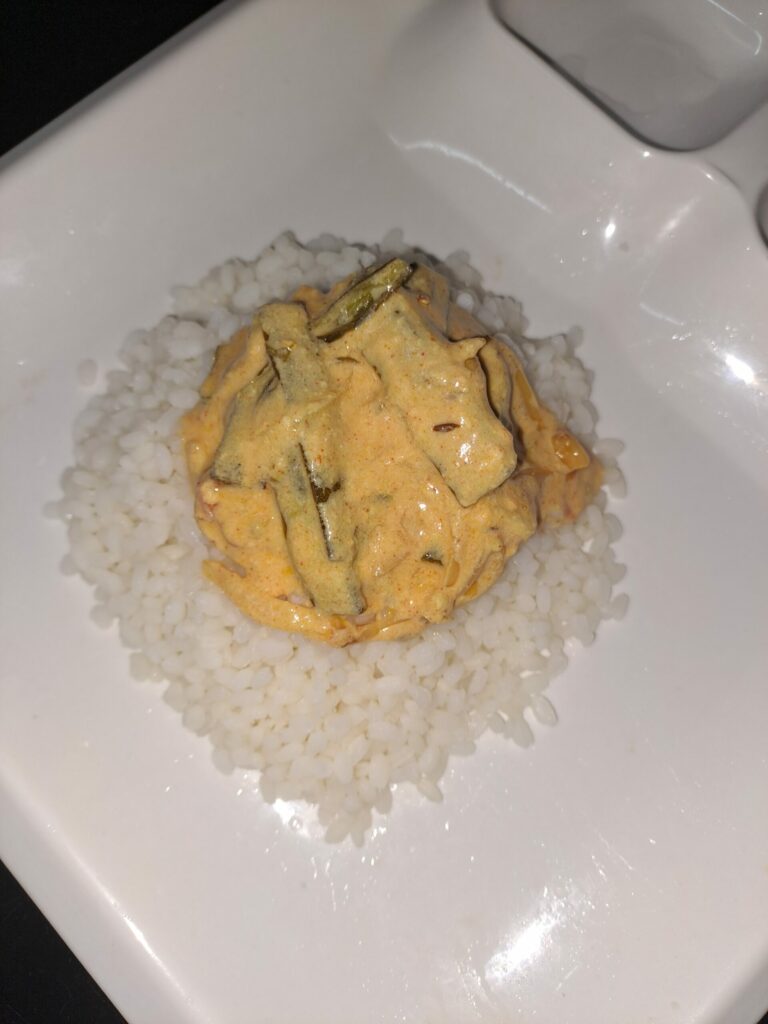
Vendakka Curd Curry | Okra Curd Curry
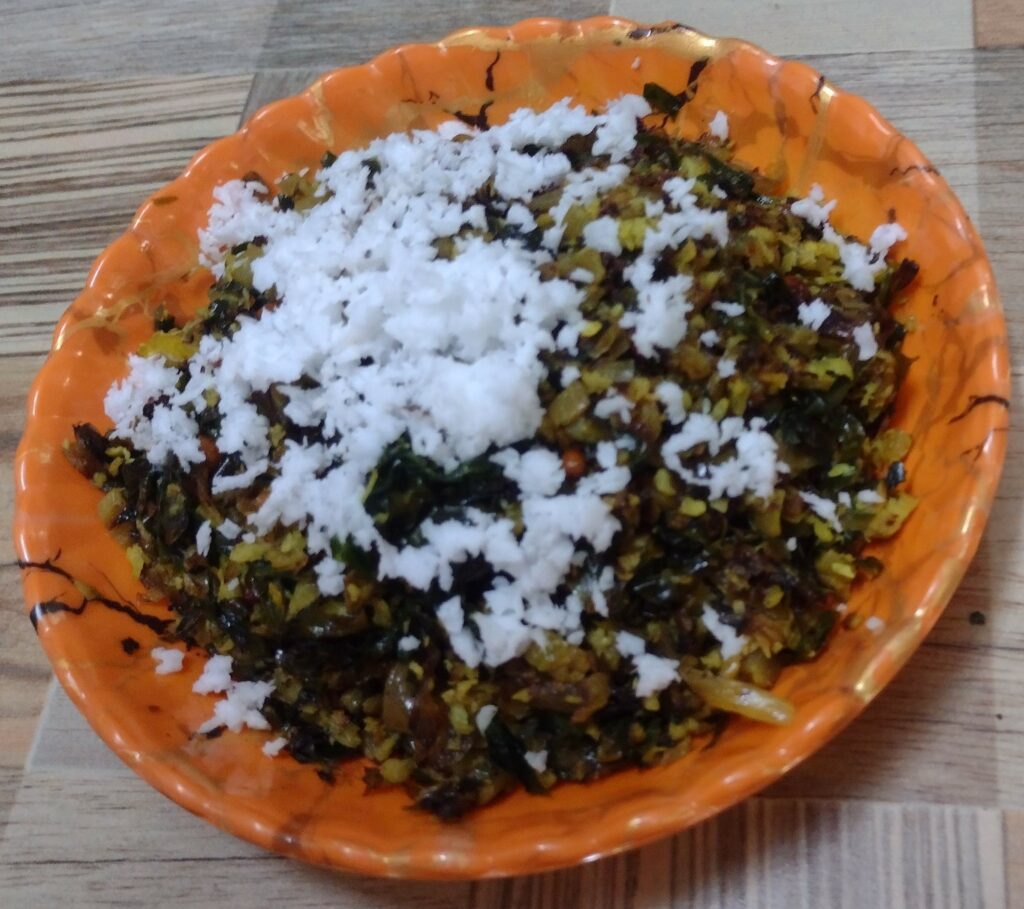
 S
S
Cheerachembu Thoran | Tahitian Spinach Stir Fry
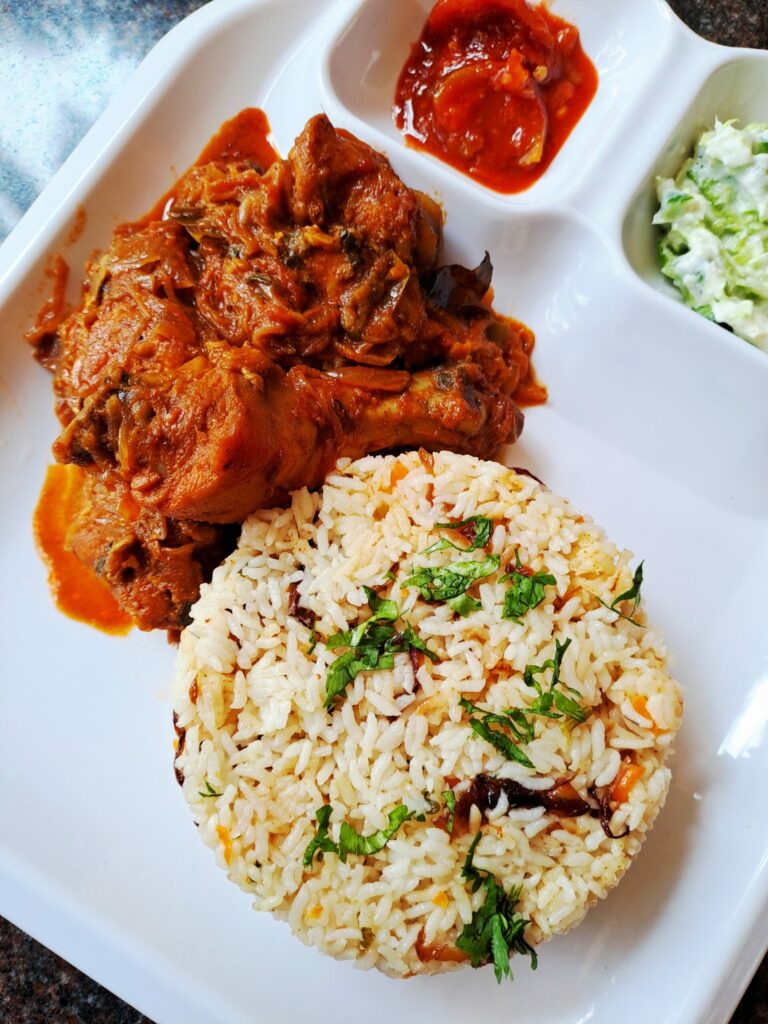
Manjali Chicken Biriyani | Manjali Biryani Kerala Style
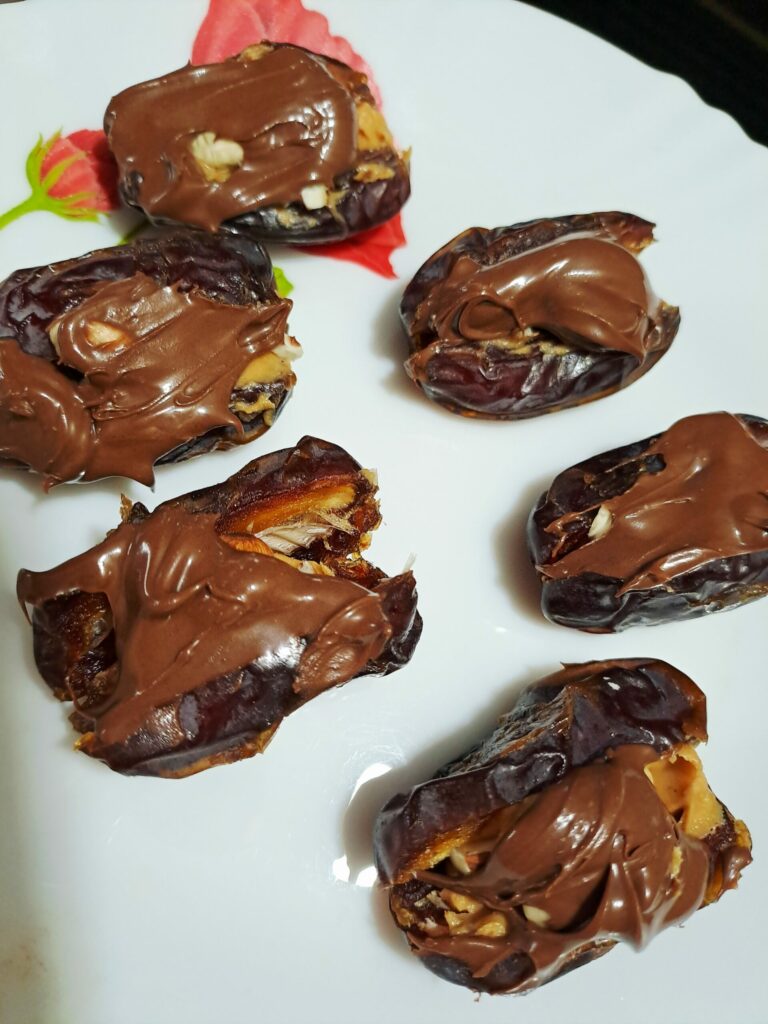
Peanut Butter Stuffed Dates | Stuffed Dates

Guacamole | Avocado Guacamole
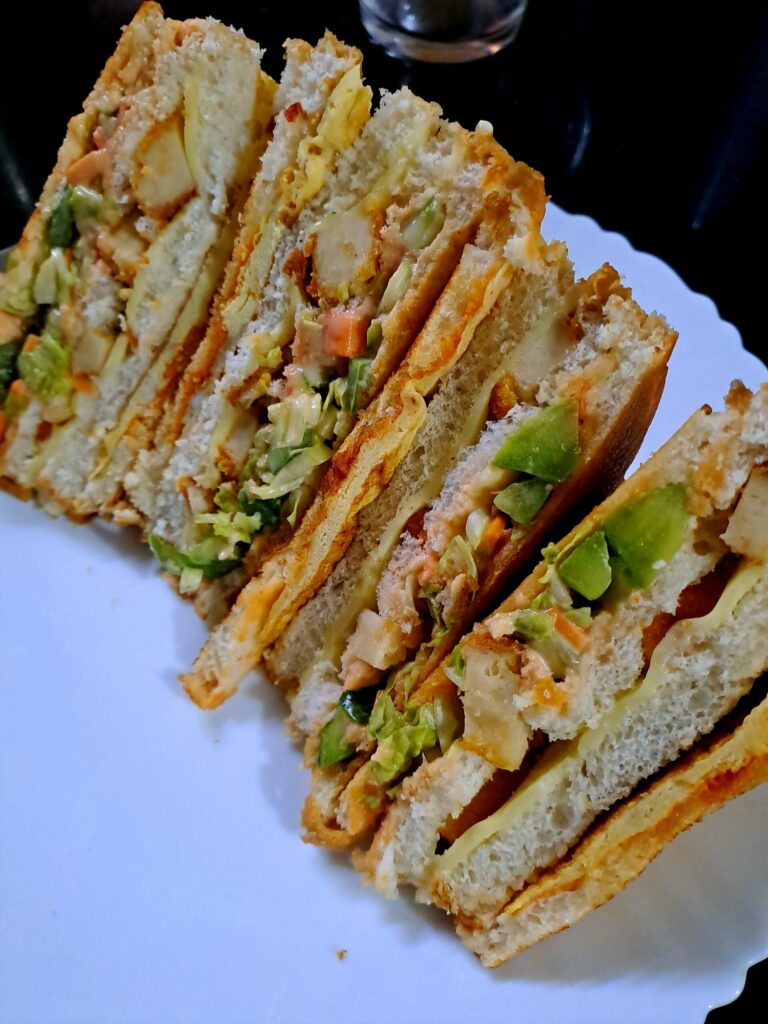
Chicken Nuggets Sandwich | Homemade Chicken Nuggets Sandwich

Malabar Beef Samosa | Kerala Beef Samosa

Guacamole | Avocado Guacamole

Vendakka Curd Curry | Okra Curd Curry

 S
S
Cheerachembu Thoran | Tahitian Spinach Stir Fry

Manjali Chicken Biriyani | Manjali Biryani Kerala Style

Peanut Butter Stuffed Dates | Stuffed Dates

Guacamole | Avocado Guacamole

Chicken Nuggets Sandwich | Homemade Chicken Nuggets Sandwich



